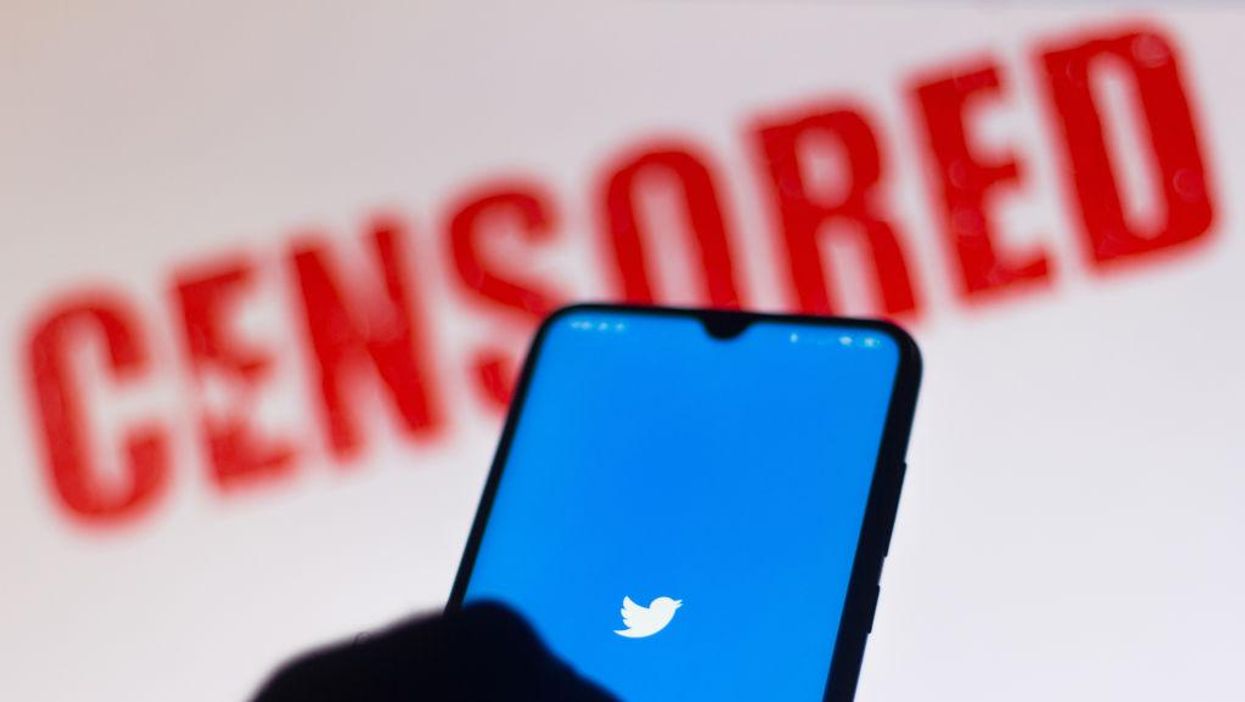
Illustration by Rafael Henrique/SOPA Images/LightRocket via Getty Images

Editor's note: This article was substantially revised on 12/15/2021 at 6:32 p.m. ET to add comment and clarification from a Twitter spokesperson.
Twitter has corrected a typo in its COVID-19 misleading information policy that led to reports the company would begin taking enforcement actions against accounts that claim vaccinated people can still spread the novel coronavirus.
Users who violate Twitter's guidelines will receive strikes on their account which can lead to permanently being banned. A typo in Twitter's recently updated guidelines appeared to contradict official information from the U.S. Centers for Disease Control and Prevention and has since been corrected to remedy the error.
According to Reclaim the Net, the company's COVID-19 misleading information policy page was quietly updated to include a new rule against claiming that "the vaccines will cause you to be sick, spread the virus, or would be more harmful than getting COVID-19" (emphasis added). An archived screenshot of the page shows the new rule was added after Dec. 2.
A spokesperson for Twitter clarified that this Help Center language was a typo. "As now reflected in our Help Center, we may apply labels to Tweets that contain false or misleading claims that people who have received the vaccine can spread or shed the vaccine (or symptoms, or immunity) to unvaccinated people," the spokesperson said.
"The earlier language is not reflective of our enforcement approach, past or present. We’ve enforced our COVID-19 misleading information policy in line with the corrected language only," the spokesperson added. "We do not take enforcement action against claims that people who receive the vaccine can spread or shed the virus."
Twitter says that "content that is demonstrably false or misleading and may lead to significant risk of harm (such as increased exposure to the virus, or adverse effects on public health systems) may not be shared on Twitter."
"This includes sharing content that may mislead people about the nature of the COVID-19 virus; the efficacy and/or safety of preventative measures, treatments, or other precautions to mitigate or treat the disease; official regulations, restrictions, or exemptions pertaining to health advisories; or the prevalence of the virus or risk of infection or death associated with COVID-19," the company's Help Center states.
Twitter's guidelines on COVID-19 misinformation were made in response to what the company says are "persistent conspiracy theories, alarmist rhetoric unfounded in research or credible reporting, and a wide range of false narratives and unsubstantiated rumors."
The CDC warns the "risk for SARS-CoV-2 infection in fully vaccinated people cannot be completely eliminated as long as there is continued community transmission of the virus.”
Early data suggest infections in fully vaccinated persons are more commonly observed with the Delta variant than with other SARS-CoV-2 variants. However, data show fully vaccinated persons are less likely than unvaccinated persons to acquire SARS-CoV-2, and infections with the Delta variant in fully vaccinated persons are associated with less severe clinical outcomes. Infections with the Delta variant in vaccinated persons potentially have reduced transmissibility than infections in unvaccinated persons, although additional studies are needed.
In August, CDC Director Rochelle Walensky told CNN that fully vaccinated people who get a COVID-19 breakthrough infection can still spread the virus to others, even if they do not show symptoms.
Twitter's updated rules will also level a strike against accounts that use research and statistical findings to "make claims contrary to health authorities" if the company believes these claims "misrepresent research or statistical findings pertaining to the severity of the disease, prevalence of the virus, or effectiveness of widely accepted preventative measures, treatments, or vaccines.”
The social media site's strike system imposes escalating penalties against accounts that repeatedly violate Twitter rules. Accounts with 2-3 strikes will be locked for 12 hours; 4 strikes earns a 7-day account lock; and 5 strikes or more will result in permanent suspension from Twitter.
Users who believe their account was locked or suspended in error may appeal to Twitter.